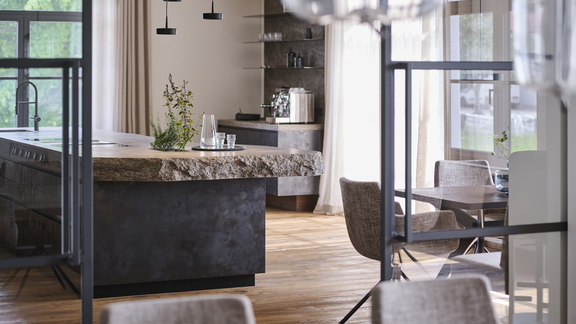

If the highest level of stonemasonry transforms your kitchen into a total work of art, you may enjoy a natural stone kitchen. The natural look, robust quality and easy-care properties make a natural stone worktop a functional and visual highlight in the kitchen. At BORA, you can find out everything you need to know about the material - from the different colour and quality versions to design tips for kitchens with a wow effect.
Anyone using natural stone in the kitchen is opting for aesthetics and robustness made from natural materials. Unlike concrete or quartz stone, for example, the material is extracted from quarries. In its raw state, natural stone looks inconspicuous. Only after processing does it show what it is made of: Then striking grains, multifaceted play of colours and unique structures come into their own.
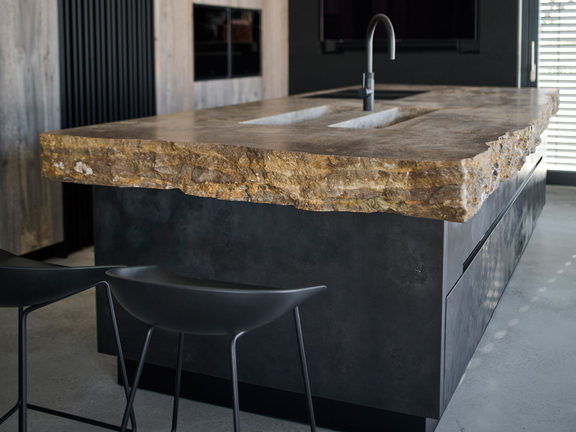
Natural stone gives your kitchen that certain something and is extremely stable: You will look in vain for scratches or dents on the surface. Even high heat, for example from pots and pans placed on the floor for a short time, does not affect the material. A natural stone floor is also popular in kitchens. It radiates warmth and naturalness, is easy to care for, robust and durable.
Granite is particularly heat-resistant: The deep rock can withstand temperatures of up to 600 degrees. Marble and slate are similarly heat-resistant. However, it is not recommended to expose the material to high heat for long periods of time. It can become discoloured, porous and dull.
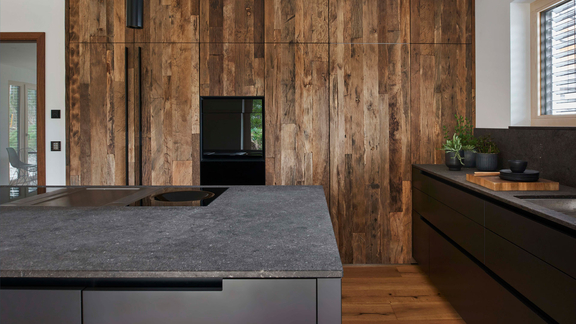
Breathtaking play of colours and a sophisticated look that underlines modern kitchen designs as well as a rustic country house aesthetic: Anyone who designs a kitchen with natural stone invites pure luxury into their home. But is natural stone also suitable for kitchen worktops? What are the advantages and disadvantages of the material?
| Advantages | Disadvantages |
|---|---|
|
|
|
|
|
|
|
|
The special thing about natural stone kitchens: no two are the same. The raw material, which has been naturally formed over millions of years, is characterised by a wide range of colour and grain variations: from soft pink tones to sandy tones and a striking anthracite. These stones are particularly suitable for the kitchen:
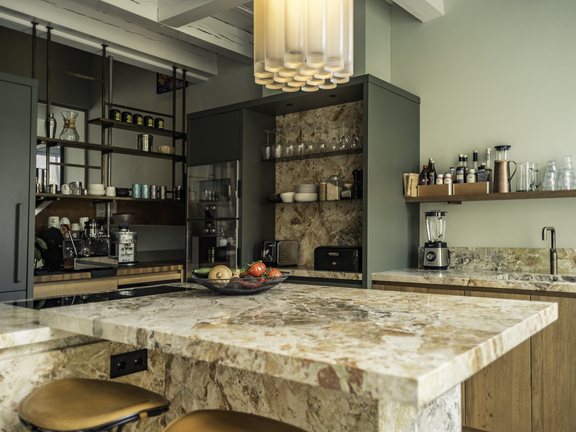
Tip: Are you looking for an extraordinary natural stone finish? Shell limestone often has fossil inclusions that give it a breathtaking structure. Impregnation protects the relatively soft and moisture-sensitive surface.
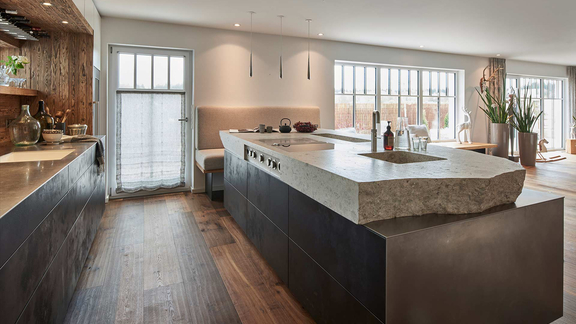
Strong contrasts, minimalist chic, natural aesthetics: Natural stone allows you to customise your kitchen design.
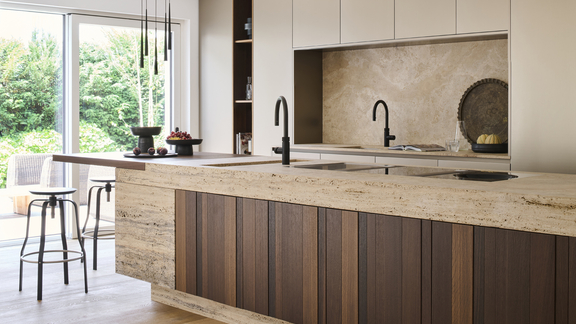
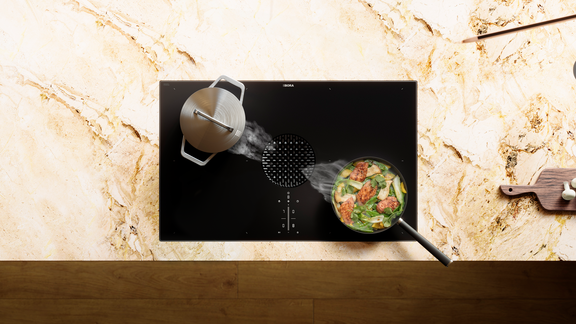
Matt glass ceramic from BORA - perfect for purist natural stone kitchens
Whether you opt for a kitchen floor made of luxurious marble or a granite kitchen worktop with its faceted grain: Natural stone kitchens have low requirements in terms of cleaning and care:
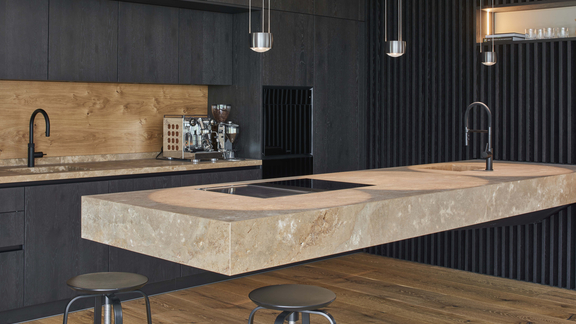
Caution is advised when handling acidic foods. They can leave stains on natural stone. Impregnation also increases resistance to acids.